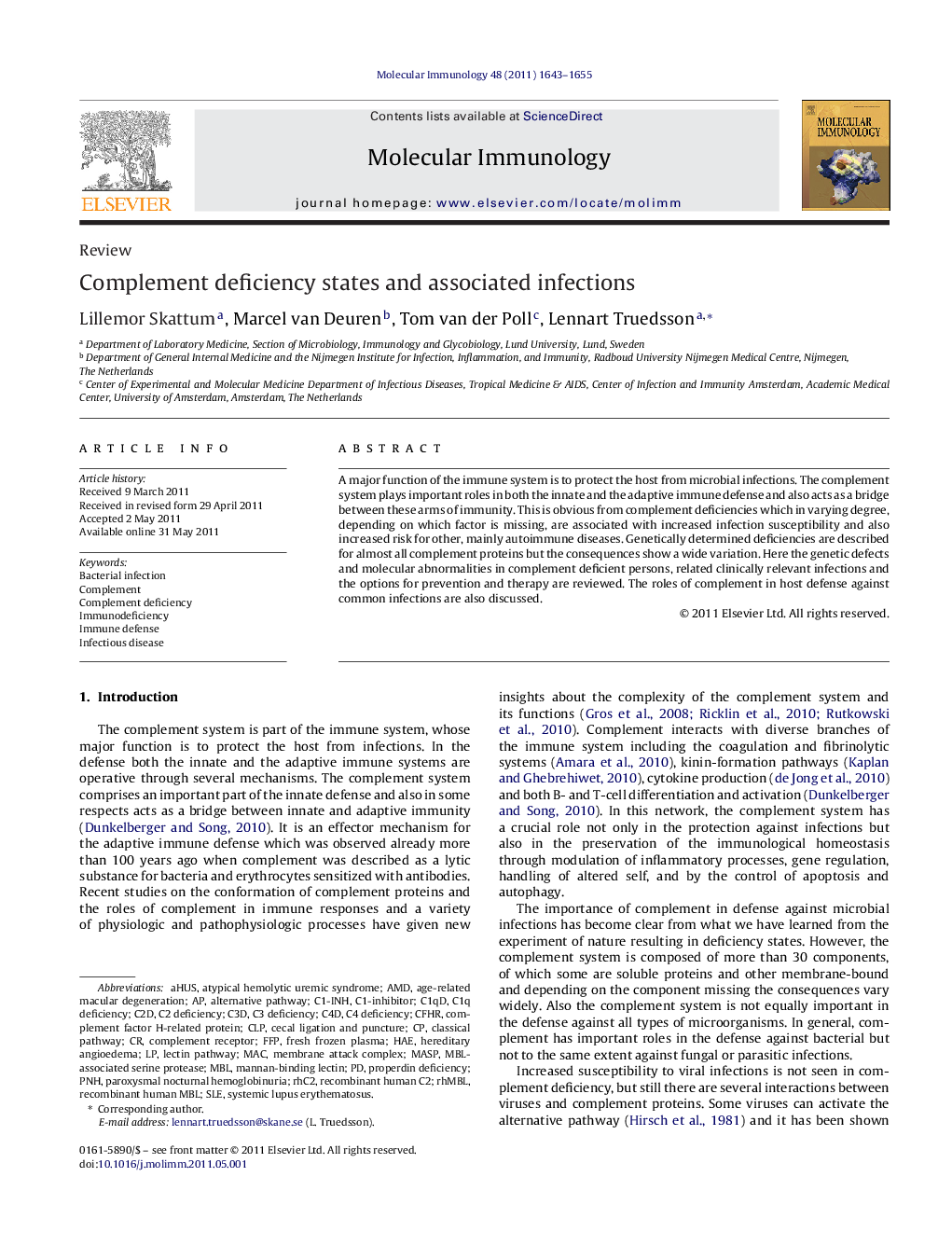| Article ID | Journal | Published Year | Pages | File Type |
|---|---|---|---|---|
| 2831441 | Molecular Immunology | 2011 | 13 Pages |
A major function of the immune system is to protect the host from microbial infections. The complement system plays important roles in both the innate and the adaptive immune defense and also acts as a bridge between these arms of immunity. This is obvious from complement deficiencies which in varying degree, depending on which factor is missing, are associated with increased infection susceptibility and also increased risk for other, mainly autoimmune diseases. Genetically determined deficiencies are described for almost all complement proteins but the consequences show a wide variation. Here the genetic defects and molecular abnormalities in complement deficient persons, related clinically relevant infections and the options for prevention and therapy are reviewed. The roles of complement in host defense against common infections are also discussed.
► Complement deficiencies are generally associated with infection susceptibility. ► Classical pathway deficiencies confer risk for infections with encapsulated bacteria. ► Neisserial infections are seen in alternative and terminal pathway deficiencies. ► Not all complement deficiency states give infection proneness. ► New therapeutic options are emerging.
